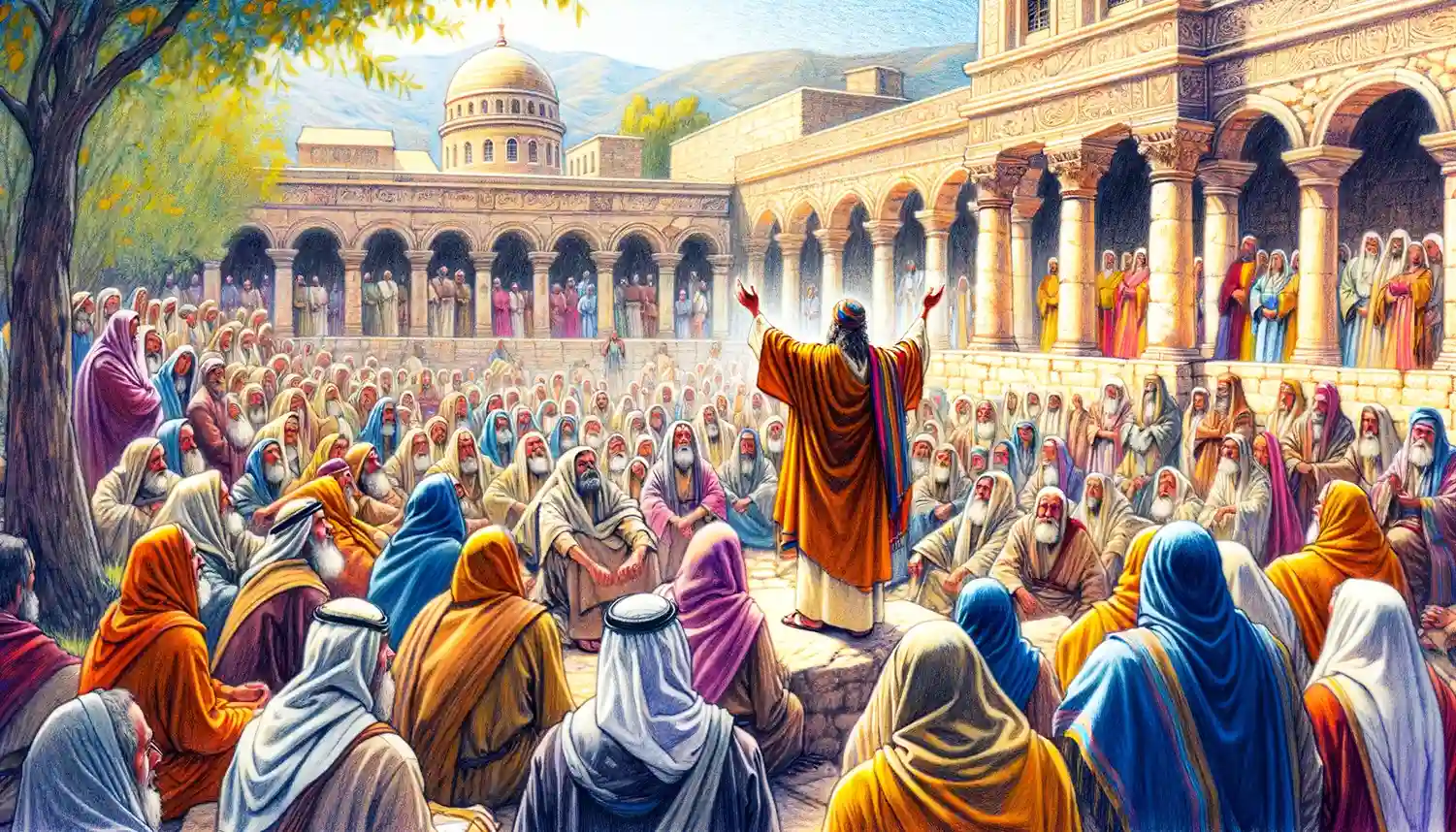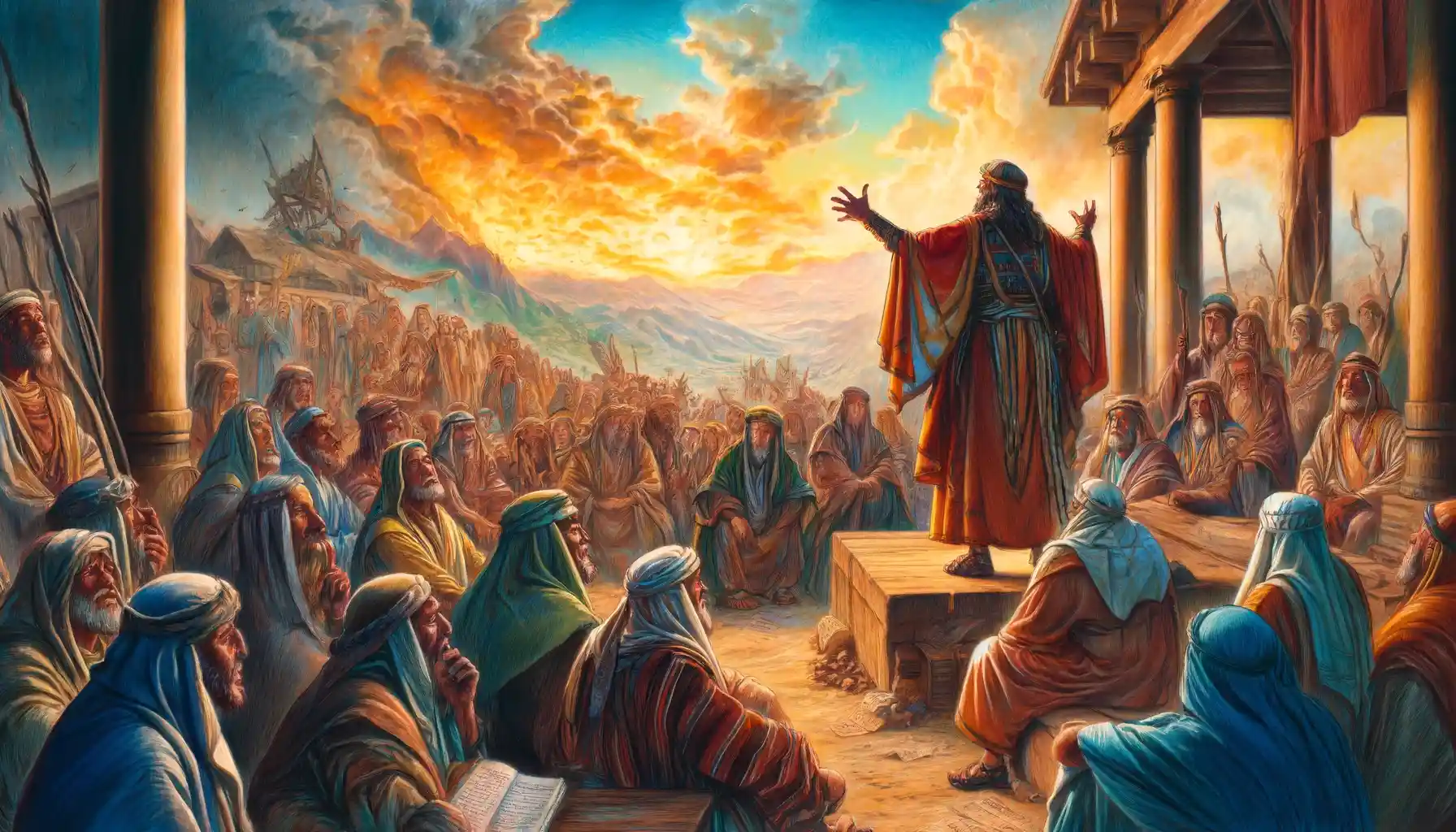Solomon’s prayer for wisdom in 1 Kings 3:5-14 exemplifies a humble plea for divine discernment in leadership, highlighting wisdom as a God-given virtue essential for just and effective governance.
The Book of Hebrews presents Jesus Christ as the supreme revelation of God, emphasizing His superiority over all other forms of revelation and urging believers to place their trust fully in Him for salvation and perseverance in the faith.
Zechariah offers a profound blend of encouragement, prophetic visions, and eschatological hope, making it a complex but deeply rewarding book of the Bible.
The Book of Malachi serves as a poignant reminder of God’s fidelity and the expectations He sets for His followers, paving the way for New Testament teachings and the coming of John the Baptist as the “messenger” foretold in the prophecies.
The Book of Zephaniah offers a profound exploration of divine justice, emphasizing the seriousness of sin and the hope available through repentance and humility.
The Book of Habakkuk offers a profound reflection on the complexities of divine justice, the problem of evil, and the essence of true faith.
The Book of Nahum provides a focused prophetic perspective on the theme of divine justice, highlighting the inevitable downfall of oppressive regimes that stand against God’s moral order.
Micah’s prophecies offer a blend of judgment and hope, with a strong emphasis on justice and the ethical dimensions of true faith.
The Book of Jonah remains a deeply symbolic text that explores themes of repentance, divine mercy, and the sometimes uncomfortable breadth of God’s grace.










